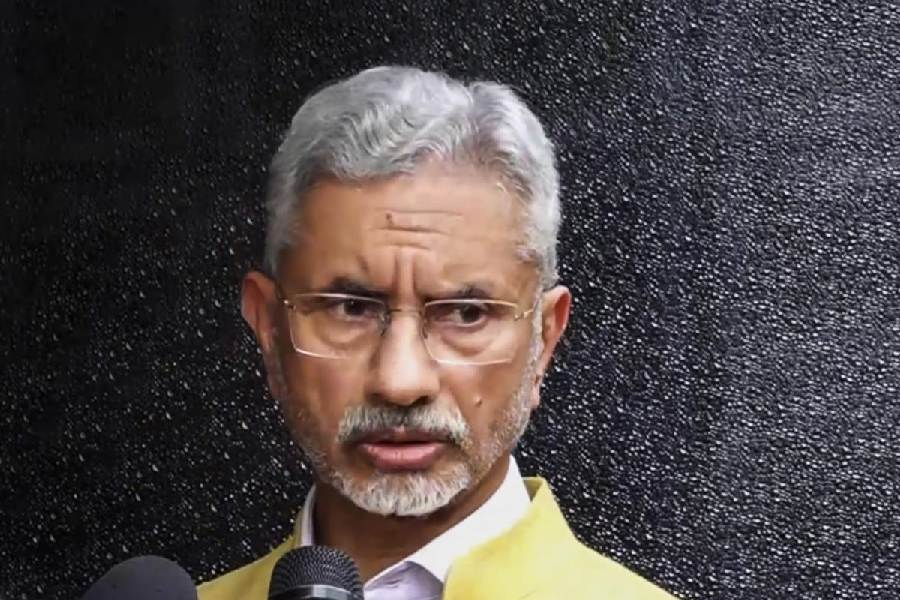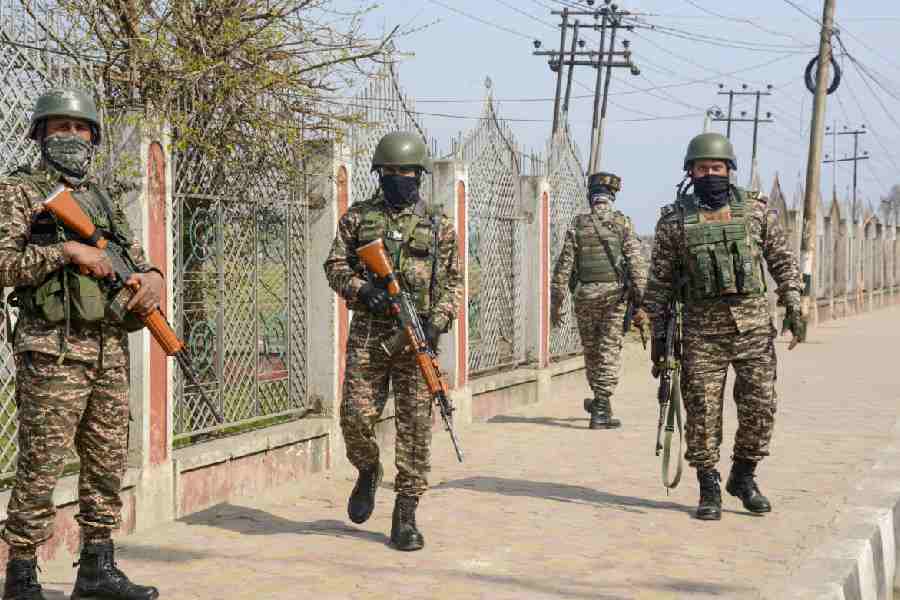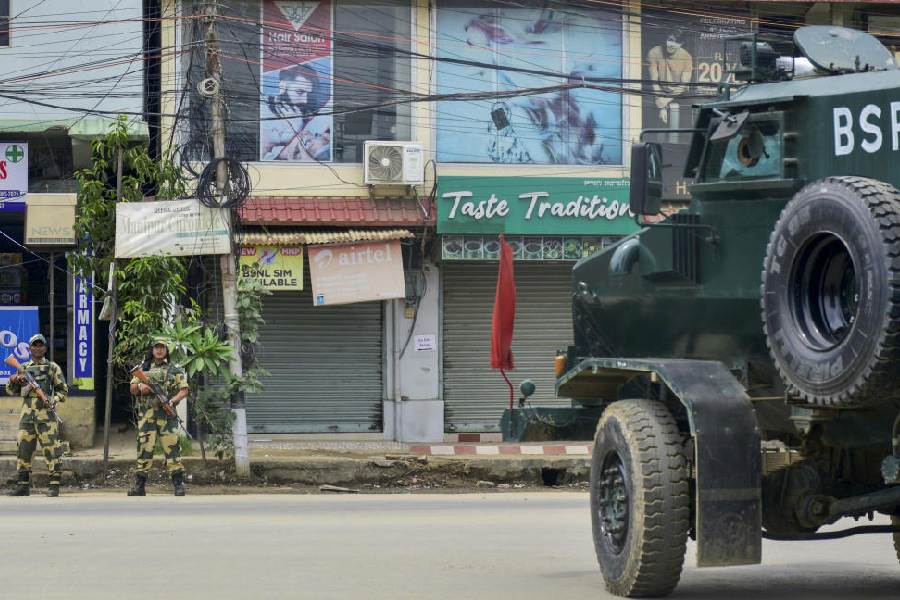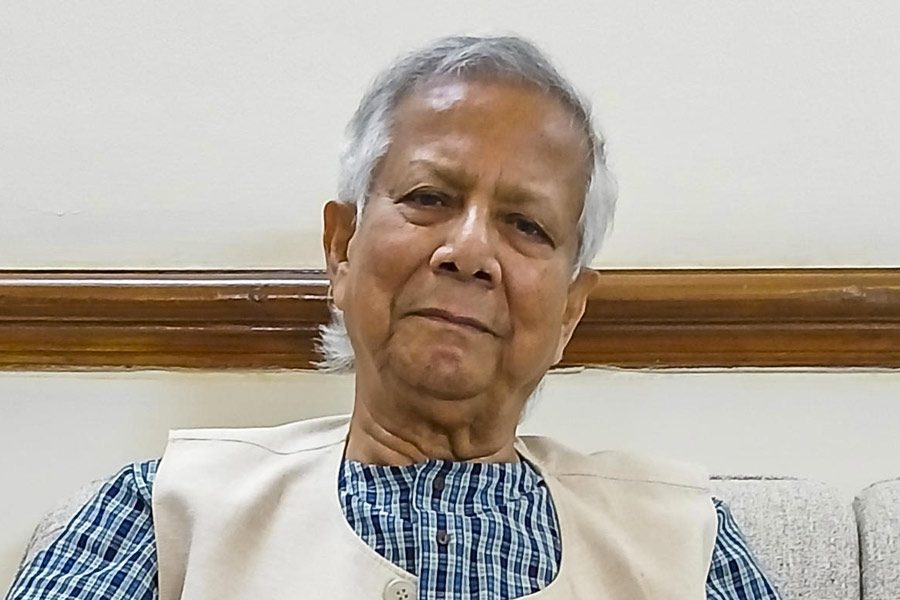 |
| Dogs at the Ranchi Municipal Corporation’s camp at Bakri Bazar in the capital on Monday. Picture by Hardeep Singh |
The capital’s third sterilisation and animal birth control camp, an initiative of Ranchi Municipal Corporation (RMC), Animal Welfare Board of India and implementing agency HOPE and Animal Trust, was launched on Monday.
The RMC and the animal board, an independent outfit under the Union ministry of environment and forests, have jointly undertaken the scheme. The project worth Rs 1.3 crore will be funded equally by the civic body and the board.
The animal board allocates funds to civic bodies to engage vets and dogcatchers to sterilise strays. According to norms, 50 per cent of the project cost in controlling dog population through the board is borne by the civic body concerned.
In Ranchi, the three camps run by the RMC and partner organisation HOPE and Animal Trust, aim to tackle the problem of stray dogs, whose bites pose a threat to public safety. Sources said the capital has a population of around 40,000 stray dogs. On an average, around 30 dog bites are recorded a day at Sadar hospital. In some cases, victims even succumb to the bites.
Called Jeevandaya Animal Hospital, the camp at Bakri Bazar where RMC earlier operated its godown, was inaugurated by mayor Rama Khalkho in the presence of RMC chief executive officer Vinay Kumar Choubey and HOPE and Animal Trust coordinator Praveen Ohal. The sterilisation-cum-vaccination of 30 dogs was also held.
In Ranchi, the other two camps are located at Madhukam (behind Sukhdeonagar police station) and at Mecon colony. Each sterilises and vaccinates 15-20 dogs per day. It is assumed that the third camp will also do so, ensuring a total of around 50 dogs getting sterilised and vaccinated per day.
RMC chief executive officer Choubey, the chief guest at the inauguration, said: “Ranchi is, perhaps, the first city to launch an animal birth control and immunisation project on such a mass scale. Actual results will be evident only in the next six years. Operated dogs will be unable to breed. We hope to see a gradual and natural decline in the number of strays.”
“In the past three years, we have been able to sterilise and vaccinate about 8,000 dogs. The rest, around 32,000, will be attended to by the three camps collectively,” said Khalkho.
The plan to sterilise and immunise the capital’s 32,000 unattended dogs in the next three years kicked off in April this year, said Ohal.
The dogs who have been sterilised sport a cut mark on one ear.
“Since April, we have operated upon nearly 1,800 dogs,” Ohal added, urging people to call up HOPE and Animal Trust on its 24/7 helpline number 9431171929 if they spot a dog without the cut mark.
Describing the procedure, Ohal said that strays are caught and made to fast for a day before the operation as a preparatory measure. “They are operated under anaesthesia and vaccinated. As part of post-operative procedure, we give them painkillers, keep the dogs for a couple of days and give them proper nutrition for a speedy recovery before their release. We also make sure each dog has a cut mark on the ear as identification,” he said.
Ohal said that people who did not know the procedures often hindered dogcatchers.
“People often feed stray dogs and get attached to them. They prevent us from catching the dogs. Our dogcatchers are often subject to physical abuse. We hope that people get aware of the benefits of sterilising the strays,” he said.










